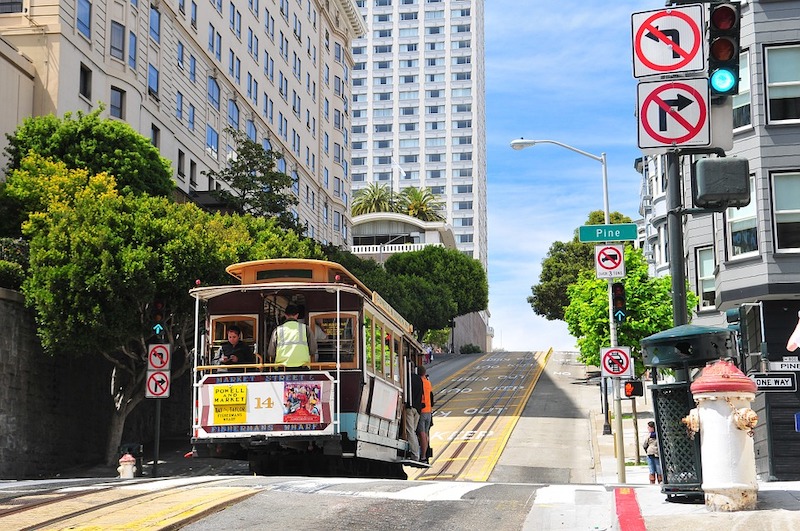A 1.5% payroll tax break for companies moving to San Francisco’s Mid-Market neighborhood is getting mixed reviews.
What became known as the Twitter tax break has boosted business activity in the area, but may have also accelerated the area’s problems, according to a report by the San Francisco Chronicle.
The city’s chief economist says that between 2010 and 2017, Mid-Market produced $6 million more in payroll and gross receipts taxes and added $750,000 in sales taxes to the city’s general fund than it would have if it grew at the same rate as the rest of the city.
In that period, 59 new companies large enough to have to report their payrolls to the city either moved to, or were created in, Mid-Market. The number of retailers grew by 3% in the neighborhood while declining by 1% citywide. The cost to the city was $70 million in lost tax revenue.
The negatives:
— Gentrification has led to higher housing costs and the growth of the district’s homeless population by 1,600 people between 2011 and 2017
— Drug dealing has increased in the neighborhood
— Some companies have failed to follow through on promises they made to aid non-profit organizations in the neighborhood
— Retail vacancies continue to plague the district’s main street
The tax break faces a May 20 expiration, and the consensus is that the city no longer needs to give major tech companies targeted tax breaks, the Chronicle reports.
Related Stories
| Mar 22, 2012
Bill would reintroduce “opt-out” provision in lead paint law
The Lead Exposure Reduction Amendments Act of 2012 (S2148) would restore the "Opt-Out" provision removed from the Environmental Protection Agency's Lead Renovate, Repair and Painting (LRRP) rule in April 2010.
| Mar 15, 2012
New Florida building code establishes flood and storm surge provisions
The new 2010 code establishes minimum design and construction requirements to protect buildings from wind, rain, floods, and storm surges.
| Mar 15, 2012
Illinois city rejects international code due to home sprinkler requirement
Macomb, Illinois aldermen voted to recommend that the city not adopt 2012 international building and residential code standards requiring the installation of overhead sprinkler systems in newly constructed one-family and two-family homes.
| Mar 15, 2012
Tenant advocates propose licensing landlords in New York City
With thousands of New York City rental units posing potential dangers to tenants, city advocates are proposing measures to make landlords improve building safety.
| Mar 15, 2012
Construction industry a big winner in federal small disadvantaged business procurement
Last year, only 5% of federal contract dollars went to small disadvantaged businesses. Construction and facilities support firms were the biggest beneficiaries.
| Mar 15, 2012
ANSI approves new fall protection standards
The American National Standards Institute (ANSI) has approved two American Society of Safety Engineers' (ASSE) standards addressing fall protection.
| Mar 8, 2012
Engineering innovation provides new option for meeting seismic codes in skyscrapers
Two University of Toronto engineers have developed “viscoelastic-energy-dissipating dampers” to replace many of the heavy concrete beams used in tall structures.
| Mar 8, 2012
CSI webinar on building code compliance March 22
A March 22 webinar will provide an overview of a 28-step process during the design of a building to ensure compliance with building codes.















